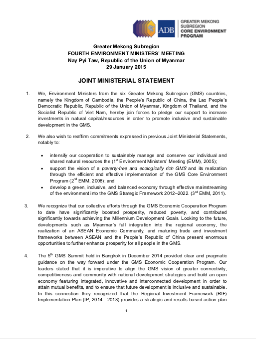
4th Environment Ministers' Meeting: Joint Ministerial Statement
This is the joint ministerial statement from the 4th Environment Ministers' Meeting in Nay Pyi Taw, Republic of the Union of Myanmar on 29 January 2015.

This is the joint ministerial statement from the 4th Environment Ministers' Meeting in Nay Pyi Taw, Republic of the Union of Myanmar on 29 January 2015.
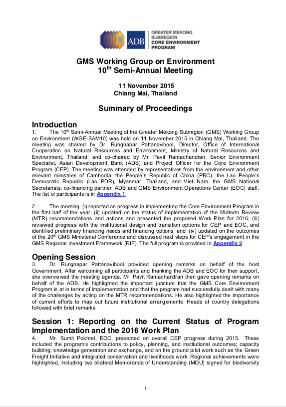
The 10th Semi-Annual Meeting of the Greater Mekong Subregion (GMS) Working Group on Environment (WGE-SAM10) was held on 11 November 2015 in Chiang Mai, Thailand. The meeting was chaired by Dr. Rungnapar Pattanavibool, Director, Office of International Cooperation on Natural Resources and Environment, Ministry of Natural Resources and Environment, Thailand; and co-chaired by Mr. Pavit Ramachandran, Senior Environment Specialist, Asian Development Bank (ADB) and Project Officer for the Core Environment Program (CEP).
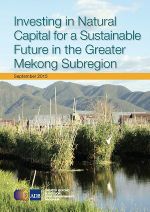
Natural capital has been a key contributor to the Greater Mekong Subregion’s rapid economic growth over the past 3 decades or so, but key natural capital stocks are in a state of decline.
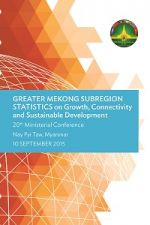
Timely availability of information, data, and indicators at the country and project levels allows for the measurement of progress – the achievement of policy objectives, as well as impacts and outcomes of target-driven projects.
The 21st Annual Meeting of the Greater Mekong Subregion (GMS) Working Group on Environment (WGE AM21), held on 23 June 2015 in Bangkok, Thailand, was chaired by Dr. Wijarn Simachaya, Deputy Permanent Secretary, Ministry of Natural Resources and Environment (MNRE), Thailand (morning, first half), Dr. Prasert Sornsathapornkul, Director, National Park and Protected Area Innovations Institute, Department of National Parks, Wildlife and Plant Conservation, MNRE (morning, second half), and Dr.
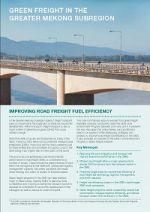
In the Greater Mekong Subregion, freight transport plays a crucial role in the expansion of trade and economic development.
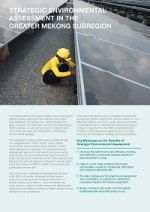
The Greater Mekong Subregion is one of the world's fastest growing regions. However, the rapid pace of economic development, and reliance on natural resources, has been accompanied by considerable environmental damage.
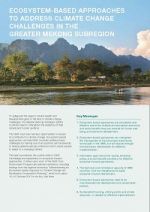
Greater Mekong Subregion countries need to strengthen the resilience of their natural and human systems to safeguard the region’s natural wealth and development gains in the face of climate change challenges.
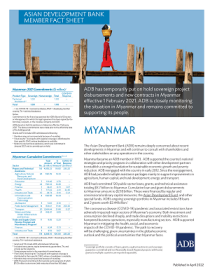
ADB remains deeply concerned about recent developments in Myanmar and will continue to consult with shareholders and other stakeholders on any operations in the country.